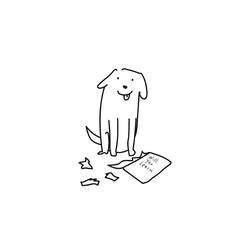|
The WillYouLearn faculty will be performing a spring concert at the Metropolitan Room on Monday, May 12 at 9:30. The club is on 22nd st between 5th and 6th. It may be late for the kids but a great chance for you parents and older students to meet each other and get to check out our faculty in action. We'll be playing a slew of original tunes and I'm hard at work writing some exciting new music for the gig. On another note the owner of the Metropolitan Room has asked that we put together a weekend ensemble workshop at the club starting in May. It will be a sort of continuing ed. coached jazz ensemble for all levels and instruments. More to come on that soon!
So much of learning to play music is about imitation. Jazz musicians especially are notorious for transcribing and learning solos from their idols. One of the first things you hear when a jazz musician talks about another jazz musician “oh he sounds just like so and so, or he kind of sounds like so and so!” Rarely is it the goal to sound exactly like someone else but it’s hard to avoid sounding at least a little like your influences. I’ve heard more than a few times something along-the-lines of, “man you’ve got that Kenny Barron thing going on.” It just so happens I learned a lot of Kenny’s solos when I was first starting, he’s one of my idols (but I’d be so lucky to sound like Kenny). Then there are those few incomparable musicians. Those musicians that you hear and they are so plainly themselves, so clearly identifiable. Charlie Parker, Miles, Louis Armstrong, Art Tatum to name a few. A few weeks ago, backstage at Lincoln Center, I overheard one of the most well known jazz pianists alive today say he doesn’t hear anyone trying to sound like him, but in every city he goes there’s always someone trying to play like Brad Mehldau. But even in many of these cases, the cases of the legends, there was a lot of imitation involved. If you listen to Blue Mitchel’s “Thing to do” you could easily mistake the album’s young pianist Chick Corea for McCoy Tyner. Chick himself admits he tried to sound just like Bud Powell for a while, and Chick has one of the most recognizable sounds of anyone. Miles Davis says he used to break Clark Terry, Louis Armstrong and Parker records by replaying them until he could play all the solos. Kenny Barron says he knew all of Red Garland’s solos on Mile’s album “‘Round About Midnight.” You ask Kenny Barron now about Red Garland and he says he admires his touch and phrasing. Coincidentally Kenny’s has incredible touch and phenomenal phrasing. Listen to his take of “Embraceable You” on his album “New York Attitude.” Imitation is a crucial part of learning to play music. If music is like a language then the best way to learn it is by surrounding yourself by people who speak it, by records and by seeing live shows. I often get asked how much should a student be practicing, the answer of course depends, I know I should be practicing constantly, but equally as important is listening. Real listening, not just in the background. Trying to learn music without listening is like learning a language without hearing it, or like trying to write fiction without reading. Not only does listening give us something to imitate, but it also helps us develop our tastes. My first jazz piano lesson started with my teacher asking me what I listen to, I said Third Eye Blind, he said “... why.” I had no answer, he told me to check out “Kind of Blue” and Chick Corea Herbie Hancock duo records. That’s where my musical education began. To this day Mike Price still calls me up at three in the morning “Man you’ve gotta youtube Jimmy Hendricks at Madison Square Garden, that’s music!” Listening is key. The infamous pianist, MacArthur genius and Gorton’s Fisherman doppelganger, Ran Blake says, “...One’s single most crucial ally in the exploration of music is the ear. When you listen, the ear reacts before the brain has time to process; it is an honest broker. When you play, the ear pulls you to a sound faster and more confidently than your brain; it is the part of you most in clutches of the muse. More than any other learning tool, the ear offers a straight line to your musical DNA and allows you to access and communicate your most honest, most original music.”
For me, this is the goal, to play with honesty and originality. Something that can only be accomplished by listening -Will |
AuthorWill Armstrong is the founder of WillYouLearn. He's a professional pianist with over 20 years of teaching experience. Archives
July 2024
|
Follow us on social! |
|
 RSS Feed
RSS Feed
